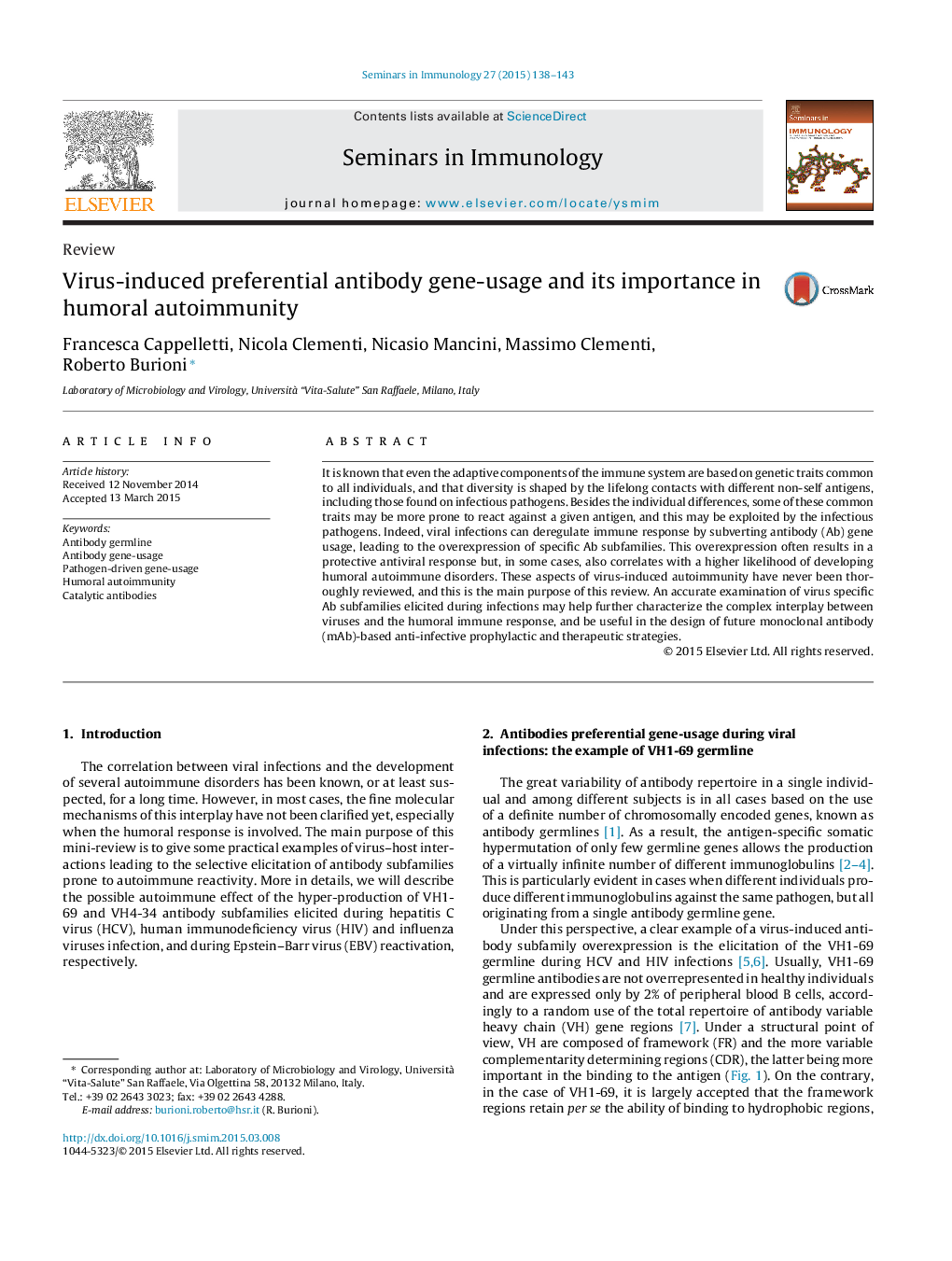| Article ID | Journal | Published Year | Pages | File Type |
|---|---|---|---|---|
| 3391372 | Seminars in Immunology | 2015 | 6 Pages |
•Viral infections can subvert immune response, deregulating antibody germline usage.•Autoimmune disorders can be the result of virus–immune system interactions.•Infection-driven VH1-69 Abs are often neutralizing but can be autoreactive.•EBV is able to stimulate VH4-34 Abs, normally deselected for their toxicity.
It is known that even the adaptive components of the immune system are based on genetic traits common to all individuals, and that diversity is shaped by the lifelong contacts with different non-self antigens, including those found on infectious pathogens. Besides the individual differences, some of these common traits may be more prone to react against a given antigen, and this may be exploited by the infectious pathogens. Indeed, viral infections can deregulate immune response by subverting antibody (Ab) gene usage, leading to the overexpression of specific Ab subfamilies. This overexpression often results in a protective antiviral response but, in some cases, also correlates with a higher likelihood of developing humoral autoimmune disorders. These aspects of virus-induced autoimmunity have never been thoroughly reviewed, and this is the main purpose of this review. An accurate examination of virus specific Ab subfamilies elicited during infections may help further characterize the complex interplay between viruses and the humoral immune response, and be useful in the design of future monoclonal antibody (mAb)-based anti-infective prophylactic and therapeutic strategies.
